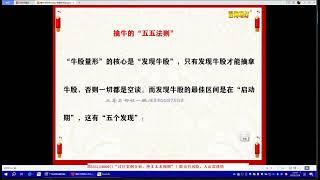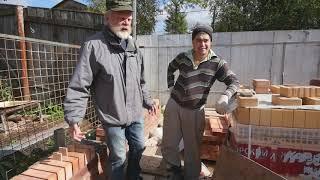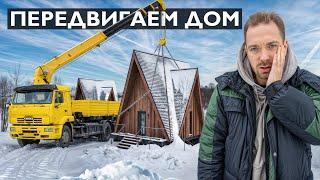
Why Argentine Spanish Sounds Italian, NOT Spanish
Комментарии:

Super video James. As someone working for an Argentine IT company and learning French, I’ve always wondered how different their Spanish is from European. Quite so apparently!
Ответить
It is better to call it Rio Platense Spanish as there are different varieties of Soanish i. Argentina and the most commonly used with its pecularities is Rio Platemse a variety,spoken in Bueneos Aires and also spoken on the other side of the Rio Plata i.nUruguay
Ответить
How would spanish there have sounded if a huge portion of dutch people had emigrated? Taken enough people to have a heavy dutch influence
Ответить
Comment: "sh" is used by "porteños", i.e. people from Buenos Aires (and usually not the most educated one) and not by the rest of the country. The real pronunciacion of "Y" and "ll" (lluvia, yo, calle) is like in english the "J" in "joint", "June". The "sh" comes from the italian. Cheers.
Ответить
Regarding the word for you, Argentines did not decide to use Vos instead of tu. Vos comes from an older form of Spanish. It's similar to vous in french and Voi in Italian. It's definitely not an arbitrary difference.
Ответить
Uruguayans watching this: 🤡 I beg your pardon??
Ответить
Curiously, the "ll" and "y" being replaced by a "sh" sound makes many of those words sound like Portuguese, where "ch" (pronounced "sh") is typically used in words that would have "ll" Spanish. For example, "llave" in Spanish (key) is "chave" in Portuguese. Is it not possible this sound shift came about from contact with Brazilian Portuguese either directly or indirectly via Uruguay (which was at one time a Portuguese colony)? Also the sing-song aspect of the language: Brazilian (although not European) Portuguese is famous for being spoken in a sing-song way also.
Ответить
With Chile beside Argentina, does Chilean Spanish sound the same as Argentine Spanish?
Ответить
Measure and Shoe don't have the same sound.
Ответить
Pronunciation, not pronounciation!!!
Ответить
The marked up and down accent contributes to make more difficult the comprehension of Argentine spanish for everyone but for Italians. The accent sounds so familiar that Italians can catch every distinct word
Ответить
I used to be on a football team that had a couple Argentinians and not only did their accent sound Italian but it had a very rhythmic tone to it. It stood out from the other Spanish on the pitch.
Ответить
Peninsular Castilian Spanish is not homogeneous, and there is nothing "neutral" about it. Peruvian Spanish can be sometimes somewhat "neutral" when compared to Mexican, Argentine, Colombian etc.
Ответить
The accent described in this video is the “Rio de la Plata accent”, which is spoken in the Buenos Aires region and south of Argentina, and in all of Uruguay, the neighbouring country. There’s not a single “Argentine Spanish” because it’s a big country and has a lot of accents, for example, people of Salta don’t speak the same way than those from Buenos Aires or Rosario, and has influence from Bolivian or Paraguayan Spanish, and they don’t use the “yeísmo”.
Ответить
Hola, interesante tema!! (He dado un "like").
Te hago dos observaciones a fin de enriquecer tu conocimiento, desde lo que yo puedo aportar:
1) Como varias personas comentaron, las características mencionadas en este video corresponden al español rioplatense (del "Río de la Plata" y alrededores), lo cual abarca parte de Argentina (principalmente centro/este) y Uruguay. Creo que el sur también. Es que el primer contacto de los inmigrantes que vinieron a Argentina entre fines del siglo IXX y principios del XX (al menos, en su mayoría) fue con Buenos Aires, al descender de los barcos. (Entre ellos, están mis abuelos y bisabuelos).
2) En castellano, la pronunciación de la secuencia "-sm-", que aparece en cualquier palabra terminada con el sufijo "-ismo", (como en "yeísmo"), es, a diferencia del inglés, SIN emisión vocálica entre los fonemas /s/ y /m/.
Saludos!!

In regards to el voseo. If you’re a native Spanish speaker, in Latin America you learn how to conjugate verbs using vos and vosotros as well as tu/usted, ustedes/vosotros. 😉
You find it in older literature. Cervantes and Shakespeare time.

I'd honestly argue that Galician or Portuguese had more influence on the pronunciation
Ответить
Argentine Spanish sounds like Spanish. They just speak it with an Italian accent. It becomes very difficult to discern which trait comes from which language because spanish and Italian are inherently two very similar languages and can even get confused with one another in circles that have had less exposure.
Ответить
what is this guy yapping about argentinian is spanish, spanish poeople cna understand argentinians and italians cant understand argentinians, argentinians just use word from old spanish
Ответить
You're very handsome.
Ответить
Im so tired of people saying it sounds Italian and not Spanish - it is literally Spanish! And it does not sound that different from other forms of Spanish also the intonation also sounds a lot like Spanish spoken in northern Spain not just like Italian
Ответить
lol It literally sounds Spanish, obviously all Spanish countries have their own accent... but if you had to choose the country that sounds the least Spanish that might be Chile
Ответить
Guatemala also uses voseo
Ответить
bro, you don't have any clue what you are talking about. Spanish from Spain is pretty much the same as Argentinian Spanish, besides some local slang that all the Latin American countries have. The language's structure, words, and verbs are the same. Otherwise, we could not understand each other and that is not the case. The accent from Argentina is a derivative of Galicia and the ancient Spanish spoken in Spain. so please stop making assumptions and start doing good research on languages.
Ответить
no
Ответить
why when people have to take a clip of Argentinian dialect they have to bring up politics lol
Ответить
Great video. I am a retired language teacher and I taught A level Spanish for many years. I always brought Latin American materials into our studies including a couple of Argentinian films and we had fun (I hope) getting to grips with it. We also used to study a Colombian film for the exam, which they always enjoyed. One of my colleagues was from Bogotá and her Spanish was beautifully clear and easy to follow!!
Ответить
It doesn't sound like Italian at all, the sounds are completely different even the vowels, sh sound doesn't exist in Italy for exemple
Ответить
They have a unique way of speaking Spanish, but I don't think it sounds Italian at all. I've heard Italians speak Spanish with an Italian accent, and it doesn't sound like this neither
Ответить
My Guatemalan husband and my former Argentinian boss speak the same Spanish, voseo, while I, a Mexican-American Spanish speaker speak the standard Spanish. 😊. So, in my head I am constantly changing how he speaks to the way I learned Spanish. We recently came back from Guatemala and voseo was spoken all over the place over there. As soon as I opened my mouth and spoke Spanish, they knew right away I wasn’t from those parts. 😊❤
Ответить
I’m half Argentinian half Puerto Rican. It would be amazing if you make a video about Puerto Rican Spanish or Caribbean Spanish and their similarities and differences. It would be pretty cool. Love your channel man!
Ответить
Your account just popped up and I didn't regret having hit that subscribe button 🎉
Ответить
But the sh sound is only in the east, Rosario and maybe Córdoba! - My colleague from the North does not speak like that. Nor did the late Sosa! Who was also a northerner.
Ответить
I see comments here that are so rude. As an Argentinian, I feel ashamed. My ex- husband, who does not speak Spanish but English always told me that Argentinian Spanish sounded like Italian to him. I worked for an American company in Argentina and some of the people there told me the same. Regarding the sh phoneme has got different pronunciations, porteños over pronounced it, while in my province (Entre Rios) we don't pronunce it that strong.
Thank you for your video.

It sounds very Italian to me, and I don't like it. It doesn't sound serious. It makes me to want to laugh 😂
Ответить
Not ¿Cómo te shamas? ❌
¿Cómo te shamás? ✅

The Voseo comes from old spanish. Like most of the verbs.
Tenés Tenéis, Venís Venís, Querés Queréis, Sabés Sabéis, etc.
Vos also from old spanish.
That's where Vosotros comes from. "Vos sois"

great topic. Only to add that lunfardo comes from "Lombardo" from the lombardia region in italy. Theres a great book about argentinian lunfardo called lunfardia
Ответить
The Spanish of Argentina might somewhat resemble Italian, but it's not as if it sound like Italian. I lived in Argentina.
Ответить
It's from the ITALIAN roots of Argentina.
Ответить
Uruguayan Spanish is the same as the Argentinian!
Ответить
I made a short movie on my channel about Italian immigration to Argentina. In my film, there are Argentinian accents, food, and body language among them.
Ответить
It's viceroyalties, not colonies, Spain had a different view on their overseas territories.
Ответить
Estoy de acuerdo en que el argentino tiene una entonación que recuerda mucho al italiano, aunque también los gallegos hablan con una entonación muy musical y fueron muchos los que emigraron a Argentina, por tanto,el acento argentino podría tener las dos influencias. Pero en lo que te equivocas totalmente es en el planteamiento que haces del "voseo" como una originalidad argentina, como algo que se inventaron ellos porque les importaba un pimiento (they didn't give a fuck) la gramática española.
En el siglo XVI, el vos y el tú convivían como pronombre de la segunda persona del singular. El vos se usaba como fórmula de respeto, cuando el interlocutor era de clase social igual al hablante (el vuestra merced, del que se originó el usted, se usaba cuando el interlocutor era de clase superior) y el tú se usaba cuando existía confianza con el interlocutor, o este era claramente inferior en clase social. Posteriormente la situación se invirtió, y el vos no implicaba respeto alguno mientras que el tú, sí.
Este último cambio se reflejó en las zonas de América que tenían virreinatos (Perú, Méjico, etc), y estaban más en contacto con la metrópoli y los cambios lingüísticos que se producían allí. Ese no era el caso de Argentina o Uruguay, ni de muchas zonas de Centroamérica, o incluso Colombia, etc. Por ello allí permaneció el uso del vos.
Pero, insisto, el vos no es una invención de los argentinos, sino una palabra del antiguo castellano que se perdió en la península y otros territorios de América y subsistió en Argentina, Uruguay y otros lugares de América.

My Spanish is intermediate but I noticed the accent immediately
Sho instead of yo. Love it

Great channel brother!! Keep doing great work you got your new subscribe
Ответить
as argentine we all grew up in italian neighbourhoods, my granny my neighbours were all italians from the south and some spaniards that s why we react to many situations as them, nowadays we still keep in our speech some italians expression thanks for your video and interest!!
Ответить










![[션표의 자연여행] 서부 몽골여행 푸르공을 타고 타왕복드에서 울란바토르까지 여행유뷰버 2500km 여정tavanbogd_khyargas_ulaagchiinkhar [션표의 자연여행] 서부 몽골여행 푸르공을 타고 타왕복드에서 울란바토르까지 여행유뷰버 2500km 여정tavanbogd_khyargas_ulaagchiinkhar](https://ruvideo.cc/img/upload/Y0FjeXhqMnVKcUg.jpg)














